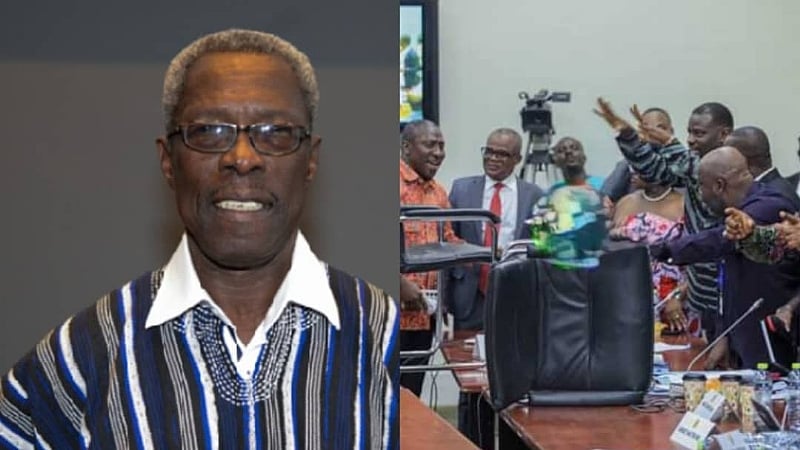Dr. Tony Aidoo’s critique of Ghanaian parliamentarians centers on their alleged prioritization of self-interest over the welfare of their constituents, a behavior he deems a betrayal of democratic principles. His condemnation stems from the recent parliamentary chaos, which he interprets as a blatant disregard for the suffering of ordinary Ghanaians. He argues that the political elite, including these MPs, are the primary beneficiaries of the democratic system, accumulating wealth and privilege while the general populace struggles. This disparity is evident, he suggests, in the rapid accumulation of wealth by some politicians, contrasting it with his own two-decade journey to build a home. He questions the motivations driving the influx of individuals into politics, positing that the allure of personal gain and the opportunity for corruption are the primary drivers, ultimately harming the nation and its citizens.
Dr. Aidoo’s accusations highlight a critical concern in democratic governance: the potential divergence between the interests of elected officials and the needs of the people they represent. This disconnect, he argues, manifests in the form of self-serving policies, prioritization of personal enrichment, and a disregard for the struggles faced by the general population. The parliamentary chaos, in his view, is a symptom of this deeper malaise, a public display of the prioritization of individual agendas over national interests. He implicitly questions the integrity and ethical foundations of those seeking political office, suggesting that the pursuit of power and wealth, rather than a genuine desire to serve, motivates many.
The rapid accumulation of wealth by some politicians, as highlighted by Dr. Aidoo, raises concerns about potential corruption and abuse of power within the political system. His comparison of his own 20-year journey to build a home with the swift acquisition of mansions by some newly appointed officials underscores the perceived disparity between the experiences of the political elite and ordinary citizens. This perceived inequality fuels public distrust and cynicism towards the political class, potentially undermining the legitimacy of democratic institutions. The question he poses – “Why is everyone rushing to be a politician?” – reflects a broader societal concern about the motivations driving individuals to seek public office.
Dr. Aidoo’s critique extends beyond general accusations of self-interest to include specific condemnation of the conduct of certain parliamentarians, including the Minority Leader. The chaos in parliament, particularly during the appointment committee proceedings, serves as a focal point for his criticism. He sees this disorder not simply as a procedural breakdown but as a manifestation of the underlying self-serving nature of some politicians. His pointed criticism of the Minority Leader suggests a perceived failure of leadership in upholding the principles of democratic debate and decorum.
The core of Dr. Aidoo’s argument lies in the concept of democratic representation and the ethical responsibilities it entails. He posits that true democracy demands that elected officials prioritize the welfare of their constituents above their personal interests. The parliamentary chaos and the alleged self-enrichment of politicians represent, in his view, a betrayal of this fundamental principle. He implies a social contract between the elected and the electorate, a contract he believes is being violated by the self-serving actions of some politicians.
Dr. Aidoo’s outspoken critique serves as a call for greater accountability and ethical conduct within Ghanaian politics. His concerns about the motivations of those seeking political office and the potential for corruption reflect a broader societal anxiety about the integrity of democratic institutions. His call for politicians to prioritize the welfare of the people highlights the fundamental principle of representative democracy: that those in power are entrusted to serve the interests of those they represent, not their own. His condemnation of the parliamentary chaos and the conduct of certain MPs serves as a reminder of the importance of upholding democratic principles and maintaining public trust in the political process.


